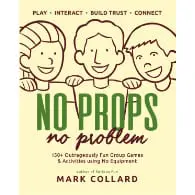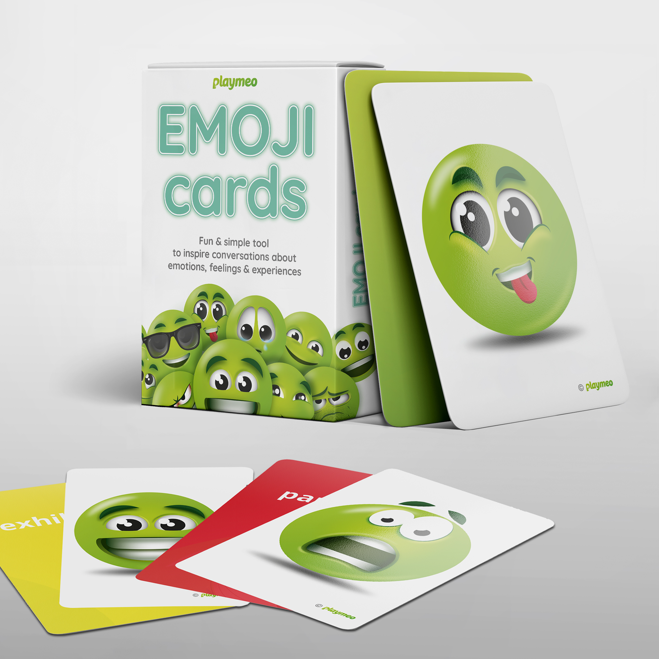20+ Fun & Engaging Ways to Form Random Pairs
So you’ve asked your group to pick a partner so that you can form smaller teams and… they immediately make a beeline to their best…

When opening a program I often make a simple invitation to my group to ‘play’ and to have FUNN. However, it’s fair to say that what they actually hear me say is to have “FUN,” but I deliberately add the extra N.
So, what is FUNN?
Karl Rohnke, co-founder of Project Adventure Inc, and best-selling author of Silver Bullets coined the term ‘FUNN’ to mean ‘Functional Understanding Not Necessary.’
It means that it’s okay to have fun, and you don’t have to understand what’s going on to have a fun time. Indeed, I often suggest to my groups that if they find themselves in the middle of an outrageous time, and were to stop and ask themselves ‘Why are we doing this?’ then don’t look too hard for an answer.
Fun is contagious and very difficult to stand away from. Also, within the realm of Challenge by Choice, it’s also hard to look cool sitting out from an activity when everyone else is having a great time.
I think the true essence of FUNN’s enormous transformative power is found within the old Chinese proverb that tells us: You can learn more about a person in an hour of play and than a day of a conversation. Too true.
I’ve seen the most hardened, cold, sceptical groups turn into the jolliest of people because they were having fun. And ‘having fun’ doesn’t mean they have to be rolling in the aisles embracing a giant belly laugh – having fun is about experiencing all that it is to be a human-being, particularly when this occurs within a non-threatening atmosphere.
So, two questions for you to ponder:
1. How much fun have you enjoyed today?
2. What type of fun did you introduce into your program today?
And, hey, if your answer to both questions is ‘none,’ then that’s OK. There’s nothing inherently wrong with not integrating fun into your program – but it may just explain why you’re meeting resistance.
To learn more about FUNN, click here to view a short video from our Facilitator Tips video series in which I explain this powerful concept further.
What do you think? Please share…
fun / funn / having fun / karl rohnke / philosophy / framework

Best-selling book featuring 150+ fun group games & activities. Scan QR codes to access digital content including videos.

Brand new deck of cards featuring emoji images to help you inspire conversations about emotions, feelings & experiences.
Download our free 28-page ebook jam-packed with outrageously fun activity ideas.
Just one more question:
We offer a range of membership plans with no surprises.
Click an option below & discover our simple pricing.

Click here if you’re a:

Click here if you represent a:
Explore plans for
10, 50, 200 or more
potential users
Thaaaaanks for this, mark!
I think this is an effective way to ‘help us be grounded’. Following our members’ pod this morning – if we want to change how participation looks, we might need to change how we look at participants……. among other things. Smiiiiile. What else might be on this range file?
And speaking of other things – adding on to FUNN, we’ve also started using PENN – Physical Evidence (or positively evident) Not Necessary – to highlight that the range of participation behaviors include those that may not be as ‘obvious’, or may not match our hopes/expectations – thinking, being quiet, choosing to sit out an activity, leaving the room, et al. What other behaviors might be useful to talk about?
Another way to think about PENN is looking at what might seem to be ‘tense’ or “this-was-not-what-i-had-in-mind” moments – as opportunities to discuss how we could support the choices/decisions (behaviors) people make. In my experience, combining this mindset with powerful experiential learning questions (‘what, so what, now what’ in their language) help amplify these opportunities.
Following the lead of the brilliant Meg Bolger – preparation is key – and a significant part of this prep is being self-aware of our state before we engage in a learning environment. For me, it is super helpful to prepare for a range of situations – participants, behaviors, challenges, responses, ‘failures’, perceptions, et al.
Especially the last one – perceptions – I would link this with ‘(facilitator) triggers’, and the kind of lens through which we look at (learning) situations. This is included in the fabulous book, co-written by Meg and Sam Killerman – Unlocking the Magic of Facilitation, chapter 9. Maybe we can think of ‘managing facilitator triggers’ as a topic for some of our next interactions?
Wonderful sharing here JeWeL, thank you. I agree – adding ‘managing facilitator triggers’ would be an excellent topic to chew on during one of our forthcoming Member Pods – maybe this is something we could even produce a dedicated webinar to cover?